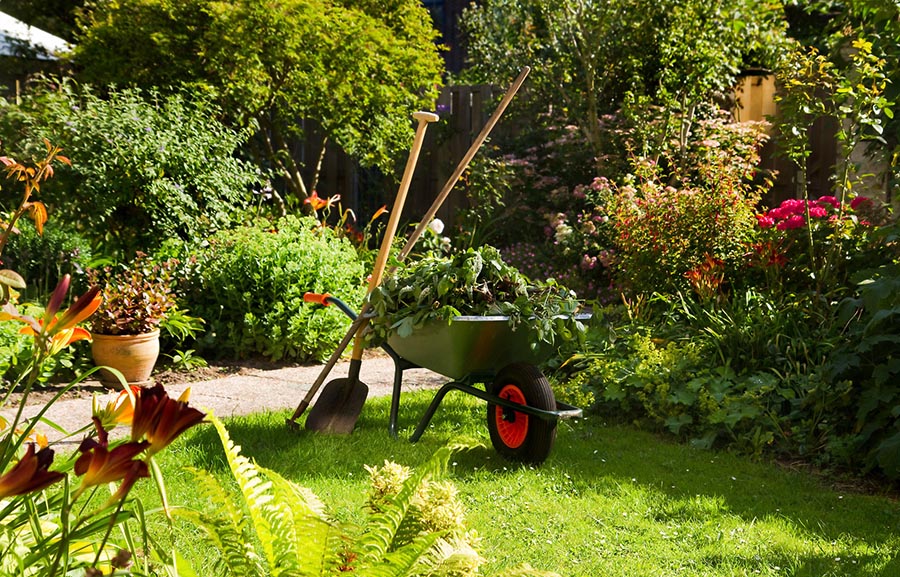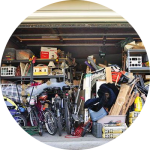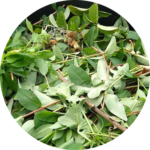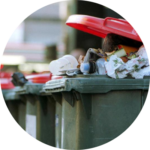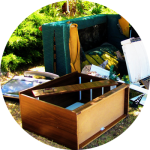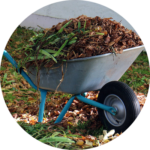Garden waste, or ‘green waste’, is a big issue for many of our valued clients. Sydney Rubbish Services operate across areas of Sydney where green waste is pervasive – the leafy North Shore, Eastern Suburbs and Inner West, and also inner city suburbs where space is limited. Garden waste removal – or green waste removal – is one of our many specialties. For us, no job is too small and no waste is too big.
Working on making your garden beautiful and the waste is building up? Sydney Rubbish Services specialise in all your your garden waste removal or green waste removal needs. We are efficient, eco-friendly and highly affordable
Common types of Garden Waste
Depending on your household and its garden, the green waste that you may need to dispose of will vary. Areas in the North Shore or Eastern Suburbs may need to dispose of higher volumes of grass and leaf waste, where as households closer to the city – the Inner West or inner city – generally have bulkier waste items like trees and branches to dispose of. No matter what you need to get rid of, we can handle it.
Common types of yard waste include smaller items such as grass clippings, leaves, weeds, plants and small twigs and branches. Bulkier items may include tree stumps, large branches, smaller trees and tree limbs.
Why It Is Important to Recycle Green Waste
Garden waste – also known as green waste, organic waste or yard waste – includes any plant or animal matter – this includes paper and cardboard, as well as degradable food scraps. When these materials end up in landfill and start to breakdown, the process is called anaerobic decomposition.
Anaerobic decomposition creates methane which is a potent greenhouse gas and can be extremely detrimental to the environment. Because of this, sustainable, conscious removal through an organic resource recovery facility is the most environmentally-friendly option for green waste removal. This will require the help of rubbish removal service.
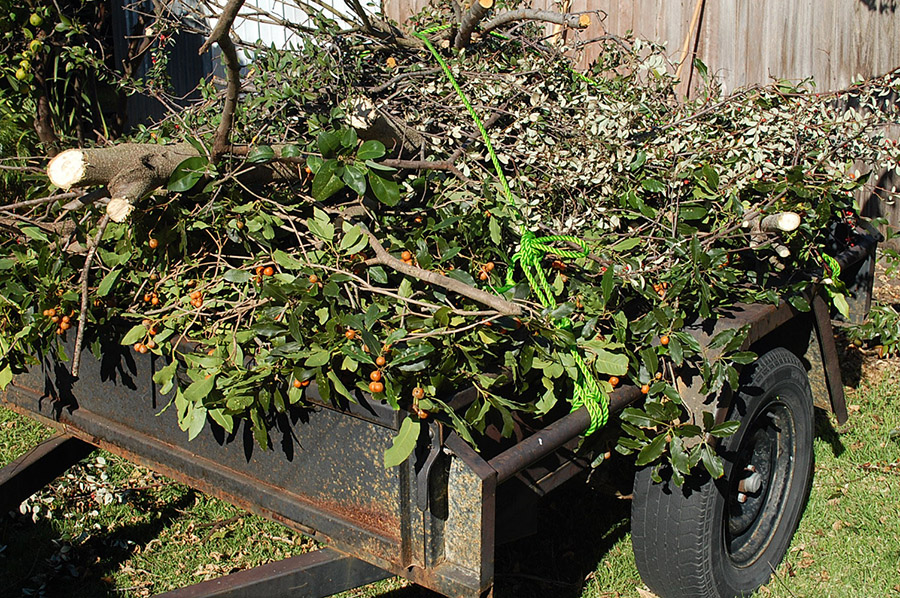
Some Facts About Green Waste
• In landfill, green waste is the second biggest producer of methane
• The gases produced during anaerobic decomposition will continue to do so for 15-20 years
• Methane contributes to global warming 25% more than carbon dioxide
• About two thirds of waste that ends up in landfill is organic waste
• Composting is an excellent option for home recycling of organic waste. It produces nutrient-rich soil that can be re-used in your own garden
• The heat produced during the composting process is enough to breakdown weeds and harmful pathogens in the soil
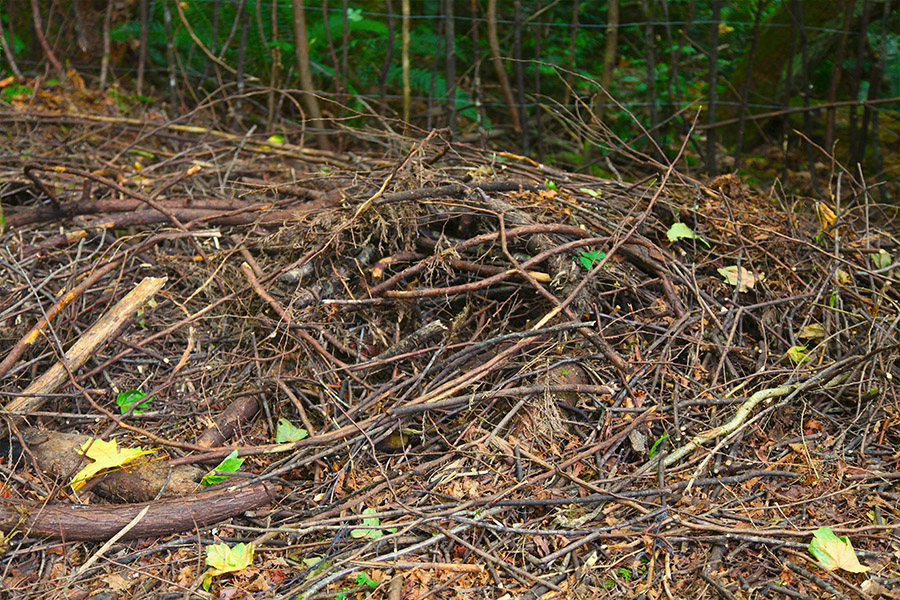
The Recycling Process
Without the space for composting there are some options for the recycling of organic waste through a rubbish removal service. This is how the process works:
Step 1: Pickup
This part of the process is the most important for consumers – making sure organic waste is correctly separated from other types of waste. This is then picked up by a waste removal service and taken to a designated organic resource recovery facility, of which there are a few in Sydney.
Step 2: Decontamination
At the facility, waste is combed for contaminants such as steel, glass, concrete, plastics and rocks, which are then removed.
Step 3: Shredding and Storage
The organic material is the loosened and shredded into small sections which are then stored in open windrows (food materials are stored in vessels for composting) – these are kept moist and turned over for 16-20 weeks.
Step 4: Composting
During storage, micro-organisms break down different materials, creating heat (between 50 and 70 degrees). This heat source will kill harmful pathogens and weeds. The compost is constantly tested to comply with certain standards.
Step: Sorting
The compost is then sorted into different standards to be used in different applications, and into different sized packages.
Step 6: Recycling
The compost products are then shipped out for use in agriculture, garden centres and other end markets where they are re-used, returning nutrients and minerals to soil, reducing methane emissions and improving plant growth.
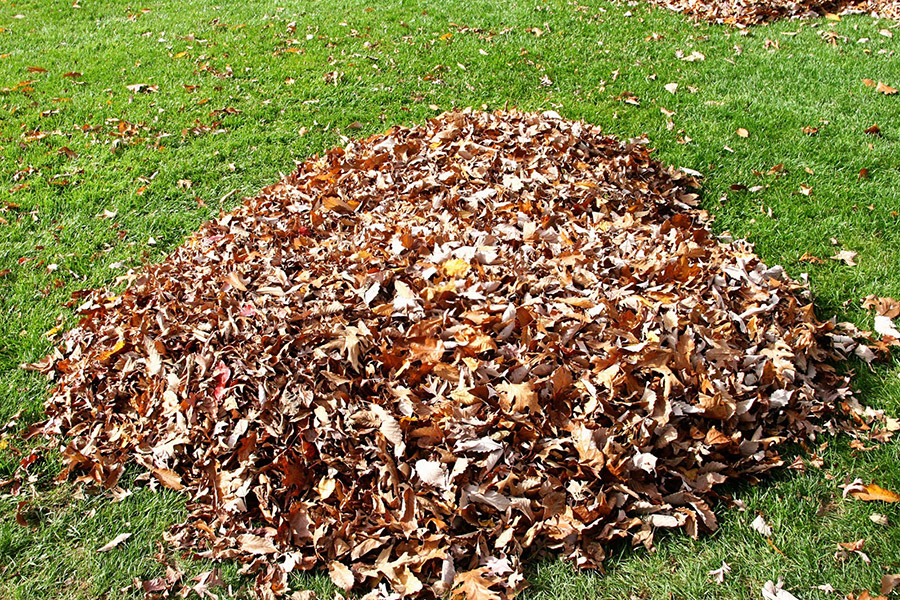
The Difficulties of Green Waste Removal
While most of green waste is recyclable and should be disposed of responsibly, the reality is that garden waste is often produced in large quantities – usually when a big clean up is in order. This poses a massive problem with removing it in an eco-friendly way.
Most of us do not own right kind of equipment to dispose of green waste in large quantities – preferably a ute or a trailer or even a home mulcher or wood chipper. And while your garden may look lovely when it is flourishing, as soon as you start working on it, waste will quickly build up and begin rotting, which is not a pretty sight.
Much if the waste from your garden is bulky and difficult to remove, and could also pose health and safety to your family if not removed quickly and efficiently. That’s when it’s best to call in the professionals.
Why It’s Best To Get In The Removalists
Council green waste removal is very limited. A big cleanup of your garden will most definitely yield more waste than can be fit in your bin – if your council provides one. For those without means to transport green waste to the few rubbish dumps in Sydney, professional removalists are your best option.
No job is too small for us, and you’ll be hard pressed to find anything in your garden that we can’t get rid of.
Sydney Rubbish Services will efficiently remove all of your garden waste, utilising our 10 years of experience in the industry with our dedicated team to cater to your needs, no matter what the size and, of course, in an eco-concious manner.
So, if you’re after efficient green waste removal – or garden waste removal – Sydney Rubbish Services are your guys. Contact us today!


